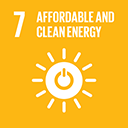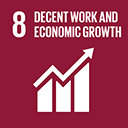
In rural Kenya, the daily routine of families often revolves around cooking meals over traditional stoves fuelled by wood and charcoal. The delicious aroma of food fills the air, but lurking beneath it is a silent danger. The thick smoke that is released when the wood or charcoal are burned not only causes respiratory problems, for women and children, but also contributes to climate change, releasing greenhouse gas emissions into the atmosphere. While gathering or buying the fuel takes significant time and money from Kenyan households. Managing animal manure also poses environmental challenges, as Kenyan farmers lack systems to manage manure from their animals, it is often left untreated and releases methane, a potent greenhouse gas, into the atmosphere.
Imagine a small farm in a rural area, where the daily routine revolves around taking care of animals and crops. In the past, the waste generated by the animals was just a burden to be disposed of, but not anymore. Thanks to the installation of different sized Sistema.bio biogas digesters, small and medium farms can now transform their organic waste into renewable, clean, and affordable energy and biofertilizer. The animal manure breaks down anaerobically in the biodigester, producing biogas that can be used for clean cooking and thermal processes both on the farm and in the household. With a simple, long-lasting gas line, biogas flows to different points of use such as cooking stoves and burners. The output of the digester is a powerful biofertilizer that can be stored and used in fields, serving as a substitute for chemical fertilizers. But this project isn't just about technology and sustainability, it's also about supporting low-income families who want to use a digester. Flexible payment plans are available, making it easier for them to access this technology. And the best part? The system is easy to install, fix, and maintain, and the manufacturer provides a 10-year warranty on the product. With the help of this innovative technology, these small farms can now produce their own energy and fertilizer, leading to a more sustainable and self-sufficient future.

that is also affordable and good for the planet

in 2021, helping to provide sustainable opportunities.

avoided per year by cutting the use of wood and charcoal
By replacing the stoves with a clean, eco-friendly system, this project is supporting families and farmers to manage their own energy supply independently. This not only reduces greenhouse gas emissions, but also improves air quality, helping minimise respiratory diseases for women and children. Using animal manure to produce biogas also improves hygiene and sanitation, while the byproduct of the digester provides organic fertilizer to replenish the soil. With the project's support, the community can build a better future for themselves and the environment.